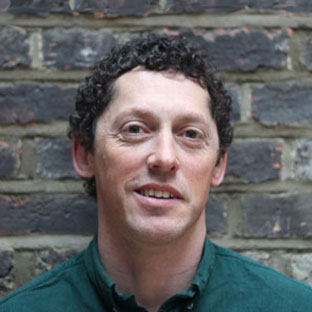This guest blog from RSA Fellow Mark Hewlett reflects on recent changes to the national curriculum and last week’s launch of RSA’s Grand Curriculum Designs. It builds on my recent RSA Journal article about the Modern Baccalaureate.
Educational change continues; two weeks ago, proposals for the national curriculum. Last week, changes to primary accountability. We can all support initiatives to raise standards in basic skills of literacy, numeracy and ICT: the basic “languages”. But despite grand rhetoric there is a sense of disappointment, reflected in observations in The Times the following day, by Alice Thomson, who, being a self-avowed traditionalist, should be an ally of the Secretary of State. She sought, but failed to find, the imaginative vision to spark the originality, innovation, and inventiveness we really need for our national success. Equalling Hong Kong and Singapore in maths and literacy is fine but if that is the limit of the Government’s aspirations then we are being sold short. The Department’s sights are too low, its vision too narrow. We can do better.
These views were strongly re-enforced at last week’s launch of Grand Curriculum Designs, a new CPD programme led by the RSA and the Institute for Education. Teachers, dissatisfied with the current curriculum, were reporting on initiatives which focused not on the relatively superficial regime of the National Curriculum, but on outcomes in terms of general skills (intellectual/practical), competences (the ability to apply ideas to a range of specific issues) and positive attitudes to learning: the fundamentally important elements of learning.
Alice Thomson’s reaction to the modest proposals for the national curriculum reflects the views of those of us engaged in the arguably more significant task of designing a “better bacc” (shorthand for a curriculum and assessment framework) to meet our national interest, and the interests of all young people.
Our current curricular model (described misleadingly, as “academic”) is ill-designed to achieve the aims we all want, as stated by business leaders (the CBI is dismissive of the current E Bacc), by those responsible for the public services, the arts and sport even academics, and not least, politicians, whose statements of aims and aspirations are fine but bear only a weak relationship to the National Curriculum whose assessment system deflects energies from the essential and the important to activities of marginal relevance to the aims they espouse.
Questioning the relevance of our current curriculum, whose structure made sense in the thought world of 18th century Dissenters, whence it originated, Professor John White, in a seminal RSA paper, “How special are subjects?” recommends that we must ask fundamental questions about the purposes of education, for example as considered in “The Point of Education” (Matthew Taylor’s article in the RSA Journal Winter 2008) or the central question posed in The Nuffield Review of 14-19 Education, “What counts as an educated 19 year old in this day and age?” These questions are not being effectively addressed by Government at this time.
If we agree that we want our education system to develop the whole range of young people’s talents to equip them with the skills (intellectual and practical) knowledge and understanding to achieve our national economic, social and cultural aspirations, what responsible person would produce an end-of-course assessment system which ignores or at best sidelines, Engineering, Design, Technology, Health Education in all its facets, Social Education, Citizenship, the Arts, and relegates to inferior status, those social sciences of Economics and Business Studies, Government and Constitution, Sociology, Psychology more relevant to understanding the world they will live in than History, that finds itself promoted with Geography, to pre-eminence, quite arbitrarily and with no coherent rationale. Let it be noted that all these subjects are as “academic” as those currently required in the E Bacc.
This is why we need the support of the RSA, to challenge ill-considered conservatism and inject some realism, common-sense and clear thought into debate about curriculum. The RSA carries weight as a society of thoughtful enlightened people who represent the interests of all educational stakeholders – in academe, business, the public services, design, technology and the arts, promoting intellectual thought and research and their translation into practical reality, a society characterised by its constant, restless drive to look forward and outward, to produce better solutions and characterised by its awareness of the multi-dimensional nature of learning. And all with no spurious distinction of status based on pseudo-academic prejudice -which infects thinking at the DfE, and results in a curriculum narrow, shallow and unfit for purpose.
This blog aims to generate support for those working for a better curriculum: broader, deeper and more imaginative. Visit the web sites of the RSA, Whole Education and HTRT or contact Joe Hallgarten for further information.


DAVID0MILLAR1
25th July 2013
HELLO SIR THIS HELP ME VERY WELL TO UNDERSTAND THE QUALITY OF EDUCATION